Essential CASA Documents
Advocacy Strategies
A large part of the CASA role involves providing the court and child support team with written information to inform their work on the case. This can include court reports, developing case plans, assessments, and more. You will find the forms to use for these essential components of your work as a CASA below. You will also find additional handbooks and guides for your reference as you engage in your role as a CASA volunteer.
Advcocacy Areas: SFCASA’s Advocacy Areas
Advocate Link Guide: A step-by-step guide for using our online advocacy platform, Advocate Link, with screenshots.
Advocate Link Guide (Educational Rights Holders specific): A step-by-step guide for using our Advocate Link specifically for Educational Rights Holders.
CASA Volunteer Handbook: Comprehensive outline of our policies and procedures for the CASA program. Please refer to this guide throughout your time as a CASA.
CASA Volunteer Agreement: Updated 2020
Court Report Template: Court report template to be filled out when a report is due to SFCASA.
Conflict Coaching Questions: a list of questions you can use to support collaboration and cooperation with the youth and the care team.
Crisis Advocacy Mindset and Strategies Some helpful questions and reminders if a crisis arises on the case you serve.
Emergency Procedures Guide: A basic guide to steps you can take to prevent an emergency, as well as how to handle an emergency if one happens while you are with your CASA youth.
Family Urgent Response System (FURS): available statewide to provide immediate trauma-informed support to current and former foster youth and their caregivers. FURS offers 24/7 hotline support and local mobile response teams with trained professionals who are available to provide face-to-face support during critical moments. A great resource for youth experiencing a mental health crisis, or a placement crisis.
Foster Youth Bill of Rights: Updated 2020
Foster Youth Bill of Rights Handbook: Questions and answers on all things related to the FYBOR.
Foster Youth Bill of Rights Coloring Book/ En Espanol
Getting Started Guide: Basic checklist for getting started on a new case.
Getting Started Guide - ERH: Checklist for ERH’s getting started on a new case.
Mandated Reporter / Suspected Child Abuse Report Form: To be used if you suspect abuse in your assigned youth's home or placement. You may also bring this up with your Case Supervisor.
SF - Bay Area Mobile Response Team: When a youth or caregiver is in crisis and calls the MRT phone number, a Seneca staff provides over-the-phone support, counseling, coaching, and guidance. If needed, the MRT contacts emergency services, or dispatches in-person Seneca support 24/7 within a 90 mile radius of SF .
Social Media Policy: SFCASA has updated its Social Media Policy to answer many of the questions we receive regarding appropriate behavior for CASAs on Facebook, Twitter, and LinkedIn. Please review this guide for information about protecting your accounts and refer back to it whenever you have concerns about connecting with your youth over social media.
SFCASA Transportation Permission: Document to permit transportation of minor child by CASA volunteer and signed by either the PSW if child resides in an out of home placement or by the parent/guardian if the child resides in their home. Please submit the completed document to your Case Supervisor before transporting a minor child.
Solutions Oriented Questions: Guidance for supporting a young person to think through options towards solutions.
"What is a CASA volunteer?" informational brochures: Click on the link to view our English informational brochure about the role of a CASA volunteer included in all notifications of appointment to relatives and caregivers.
"What is a CASA volunteer?" informational brochures: Click on the link to view our Spanish informational brochure about the role of a CASA volunteer included in all notifications of appointment to relatives and caregivers.
Youth Cell Phone Use & Restrictions: This All County Letter from CDSS provides guidance for the use and restriction of cell phones for foster youth, especially youth involved in, or at risk of, CSEC.
